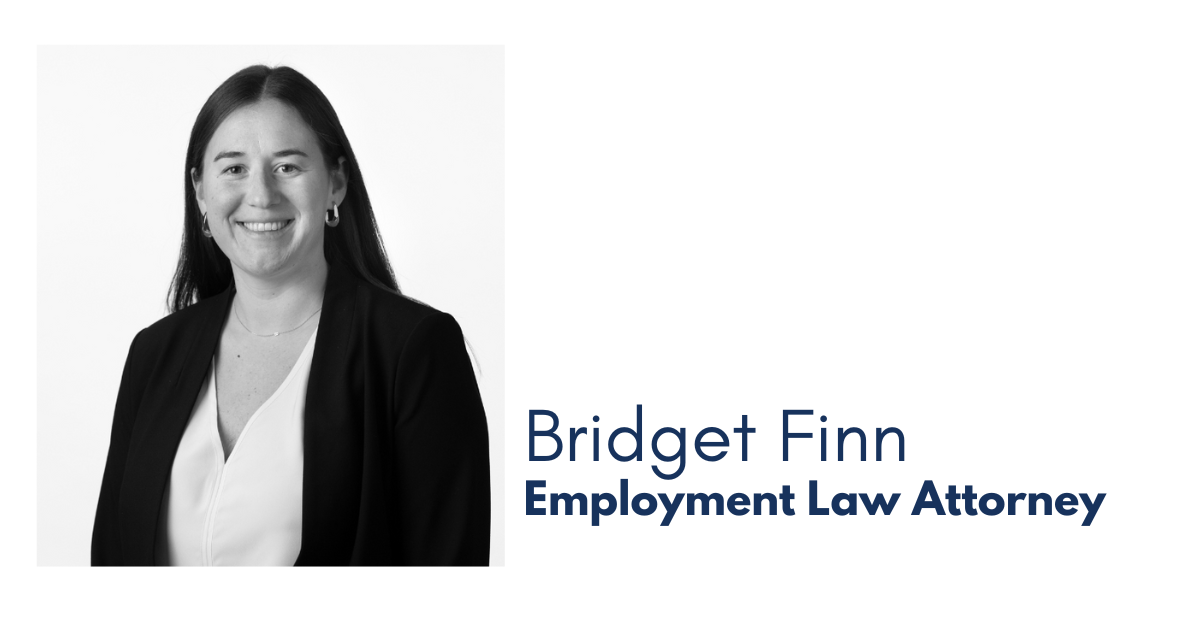Interview with Employment Law Attorney-Bridget Finn
In honor of Small Business Month, WFJ is highlighting the legal guidance that helps small businesses thrive by sitting down with employment and labor law attorney, Bridget Finn. Known for her collaborative, solutions-oriented style, Bridget works closely with small business owners to help them navigate the complex world of employment law with clarity and confidence. In this interview, she shares her perspective on the value of early legal planning, the most common compliance missteps she sees, and practical steps business owners can take—even without an in-house HR team—to build strong, compliant workplaces.

What’s your favorite part about working with small business clients?
What I value most about working with small business clients is having the opportunity to work with leaders on a variety of issues from start to finish and offering solutions along the way.
If you could give one piece of legal advice to someone starting a new business, what would it be?
I would advise new business owners to recognize the importance of establishing policies early on, as they provide a solid foundation for how operations should be managed. Consulting with professional legal experts at the outset of a business venture will yield significant benefits in the long term as you are getting ahead of any possible legal and employment issues that might come up down the line.
What are some of the most common mistakes you see small businesses make when it comes to employment law?
A common mistake many small businesses make is failing to maintain proper records or documentation of policies, procedures, and incidents. It’s crucial to document these details so that you have a reliable reference to look to when you are busy managing the day-to-day business operations.
What’s one thing business owners often overlook in their employee handbooks or workplace policies?
One key aspect employers often overlook in their employee handbooks or policies is ensuring they are regularly updated to reflect changes in local, state and federal laws, as legal requirements are constantly evolving. The handbook should be viewed as an evolving document that should be adapted as time goes on.
How can small businesses stay compliant with employment laws without having a full in-house HR team?
Small businesses should take full advantage of the resources offered by the Compliance Center, including legal advice, policy and handbook drafting, as well as many other resources that provide summaries and updates on legal developments.
What’s one of your favorite small businesses?
One of my favorite small businesses is FRGMNT Coffee.



















